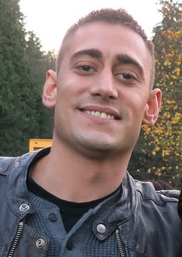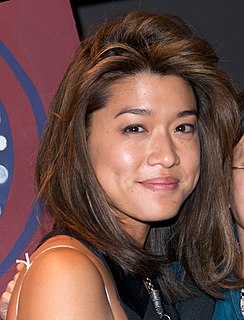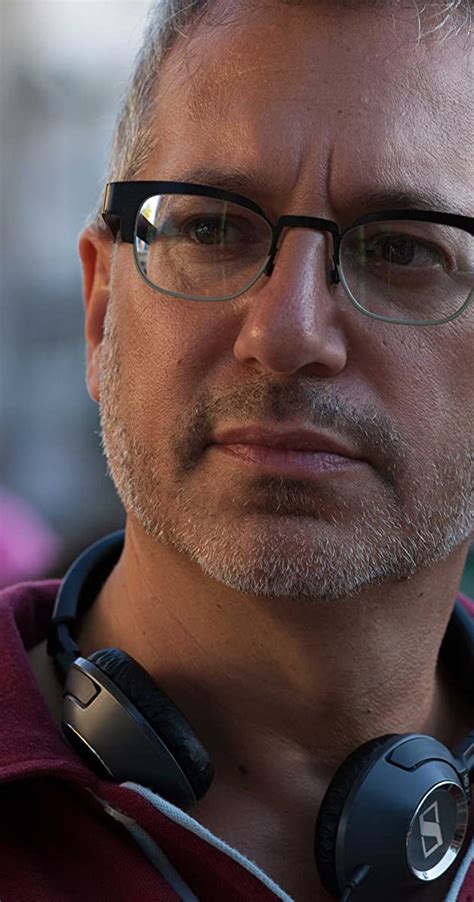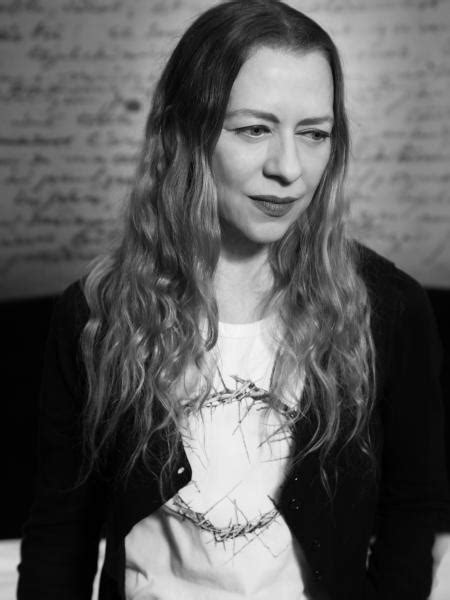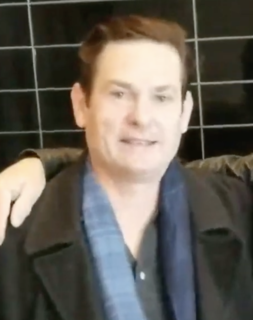A Quote by Martine Syms
I was very conscious of the film industry - a lot of people, neighbors, worked in it. I actually grew up doing a bit of extra work myself. I was homeschooled, and it was a way that I could make money. My parents let us do these jobs, and I never got very far, but I was much more interested in what everybody else was doing, and I liked being on set.
Related Quotes
Sometimes I'm on a TV set, and I can't feel what I'm supposed to feel as that character because I've not worked my way up to that point. I think there's a bit more insecurity on a set - you've got to blag it, or you've got to do what you've been paid a lot of money to do in a very short space of time.
I worked in a chicken factory, in a steel foundry, I worked on the bins for a year or so. It started as a summer job, but I stayed on because I liked it very much. I liked it that it made you very fit, doing all the lifting and that, so I could wear short-sleeved t-shirts, which I'd never been able to do before!
As much as people were asking me and everybody else on the show constantly if Jon Snow is alive or dead, I think, really, in their heart of hearts, they didn't actually want to know. For us, it felt very important to maintain that secrecy for the fans, and we worked very hard to make sure that worked out.
Figure our what it is you don't do very well, and then don't do it. I'm not beating myself up about doing everything perfectly. The litmus test I always use for myself is: "Okay, if you won 20 million tomorrow in the lottery would you still being doing the same thing you are doing now with your life, Dough? The answer is "yes". I'm always very conscious of that.
Most of my life, everybody made more money than I did at the places I worked. In fact, when I've been an employee, I have never been anywhere close to being the highest paid person there, never. I was working hard. I was working hard. I was doing things I didn't want to do, that I thought I should do. I was getting up every day, going to work, did not phone in sick. Striving. Trying to get ahead, you know, doing what Obama says, working hard and applying myself and trying to get ahead. There was always somebody, there were always a lot of people that earned more than I did.
The good thing about doing a comic that's entirely my own voice as a debut is that people approached me with similar jobs, with stuff that they knew that I could do justice to because they had read what I'd already done. It meant that I was getting jobs that I was actually interested in, and I didn't have to prove myself on someone else's property.
A radio play actually ended up being the first acting job I ever had. A lot of times when I'm on camera, I'm playing characters that are more like myself, and I don't get to do a lot of real character work. But when you're doing animation, you are the very epitome of colorful characters. I think I'm just really into make believe.
If I read a script and the subject stays with me - then that's when I want to go to work. Before, I was very addicted to being on set, and I was doing three or four movies a year for many years. Now, fortunately, I can go to work only when I am passionate about a project, and the rest of the time, I can live my life. I'm not interested in doing movies just as a marathon. When I go to work now, I have much more to give. But the other way, you get empty.
My parents had an independent theater company here in Sweden during the 1980s, so I was raised watching my parents create independently, having a lot of fun and just doing what they wanted to do. I think that idea of independence as an artist was something I was always used to. And then I entered the industry from a very commercial perspective, and things were very different then from what I grew up with.
I'm very aware of the influence I've had, and I'm very pleased with that, because it proves that my work was necessary, that people liked it, and that it was right for its time which is a big compliment. But of course, this means I now have to move on. If more people are doing what I'm doing, I have to evolve. I'm pushed toward a new direction, and I have to let myself be tempted, find out where I can go.
I got to work with Robert DeNiro once and it was a strange experience. Gwyneth Paltrow and I were doing Great Expectations movie together and we were complaining about what a mediocre film experience it was. DeNiro showed up on set and all of a sudden the director got better, the director of photography got better - everybody got more interested and excited. DeNiro isn't waiting for other people to create the environment that he wants, he brings it along with him.
I realized doing this work, identifying either issues or challenges or thinking about opportunities to actually impact people's lives, I could actually make things better, and bringing people around the table for solutions was something I liked doing and was actually something I was able to do fairly well.

